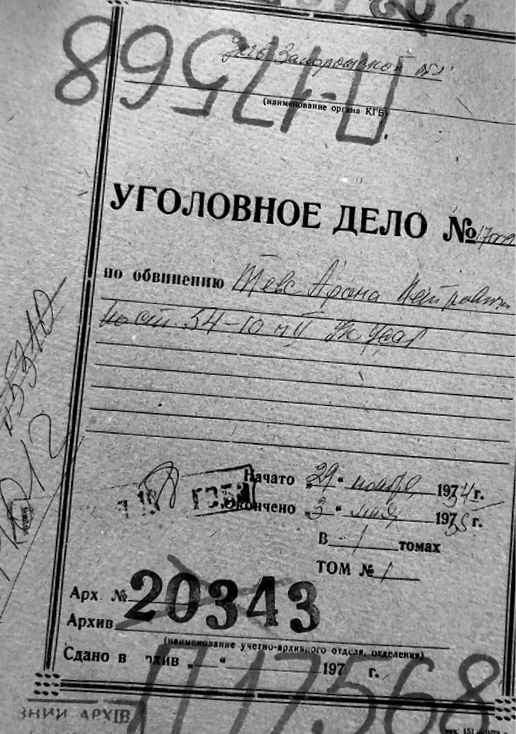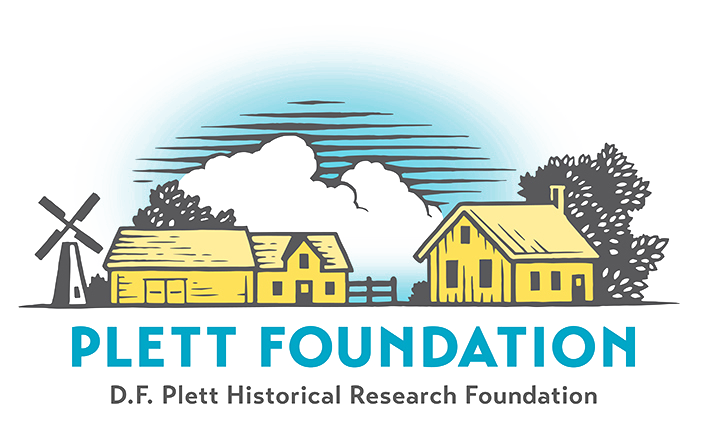Centre for Transnational Mennonite Studies
The Centre for Transnational Mennonite Studies (CTMS) at the University of Winnipeg is a partnership between the Plett Foundation and the Chair in Mennonite Studies. The centre has continued its robust engagement in the fields of scholarship, community outreach, and teaching. A packed room listened to Dr. Colin Neufeldt deliver the fourth annual CTMS Lecture on May 30, 2019. Entitled “Building a Soviet Utopia: Mennonites and the Collective Farm in Ukraine, 1920–1924,” this lecture explored how Mennonites performed leading roles in developing and administering Soviet institutions during the first years of Bolshevik rule. Dr. Neufeldt, who is a Professor at Concordia University of Edmonton, showed how Mennonites took an active, voluntary role in organizing and operating early versions of collective farms in local communities. Neufeldt’s research focuses on the experience of Mennonites during the dekulakization and collectivization in the Soviet Union. He has written numerous works exploring the participation of Mennonites in the establishment of Soviet institutions in the countryside.

CTMS also hosted Dr. Mark Louden on a snowy afternoon this October. Dr. Mark Louden treated the University of Winnipeg to an engaging talk on “The Meaning of the Pennsylvania Dutch Language.” Dr. Louden, who is a professor at the University of Wisconsin-Madison and is fluent in Pennsylvania Dutch, thoroughly entertained us with examples of the colourful language while illustrating its significance in the formation and consolidation of identity. The lecture inspired a lively discussion of comparison between Pennsylvania Dutch and Low German. Dr. Louden had been visiting Manitoba to connect with Jack Thiessen, Manitoba’s resident Low German expert, whose book, Mennonite Low German Dictionary, has recently been revised and republished. Dr. Louden’s recent book, Pennsylvania Dutch: The Story of an American Language (John Hopkins University Press, 2016) explores how Pennsylvania Dutch has thrived despite being a primarily spoken language.

The Centre also launched the Paul Toews KGB Archives project, which helps Mennonites find the answer to the fate of their family members who disappeared in Soviet Ukraine during the 1930s and 1940s. Families searching for information on their missing family members should send the name of the family member, date and place of birth, and names of their parents to ctms@uwinnipeg.ca. This program has already answered inquiries from nearly eighty Mennonite families. At this year’s Darp Day in Neubergthal, Manitoba, Dr. Aileen Friesen presented on her findings from archival files of arrested Mennonite men and women.
This was the first year that Mennonite Studies at the University of Winnipeg hosted a Fall Meet & Greet for students interested in the program. This event allowed students to interact with each other and learn about the courses offered by the program. This year Mennonite Studies also started to offer Mennonite Studies I and Mennonite Studies II as video on demand courses, meaning that students from around the world can now enroll in the courses via video. In the fall term, nearly one hundred students have been educated and entertained both in the classroom and remotely by the Chair in Mennonite Studies, Dr. Royden Loewen.
Mennonites and anthropology share a complex series of entanglements and the recent Mennonite Studies conference, hosted by CTMS at the University of Winnipeg from October 25-26, 2019, investigated all aspects of these relationships. The conference gathered together twenty-nine presenters from around the world to discuss recent ethnographic studies and reconsider the ways in which Mennonites have imagined, embodied, and enacted their religious practice. The keynote speaker was Dr. James Urry from Victoria University of Wellington, New Zealand, who spoke about the complicated intellectual relationships between Mennonites and the fields of anthropology and history. The conference was convened by Dr. Royden Loewen, Chair in Mennonite Studies, and Dr. Philip Fountain of Victoria University of Wellington, New Zealand. Through a wide variety of themes, from the rituals that form an ethno-religious identity to Mennonites on the mission field and encountering the ‘other’ more locally at home, the conference examined new ways to ask what it means to be Mennonite.
